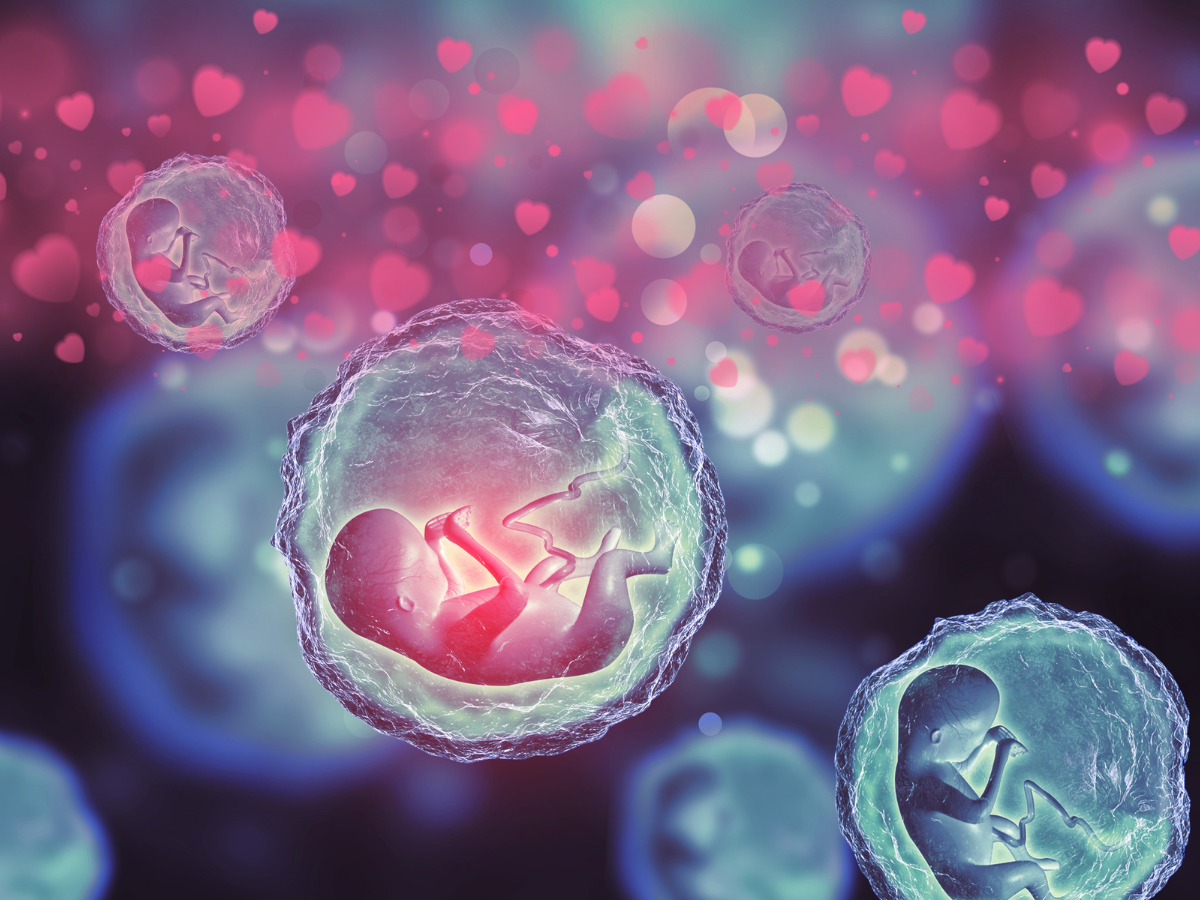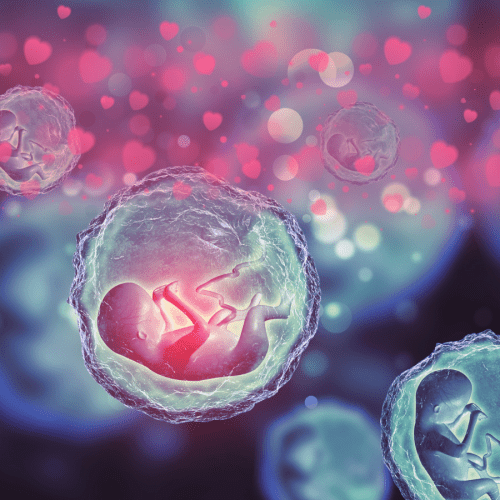The post mudghah (morsel of flesh) phase is a very important time in baby’s development. At this stage, the brain begins forming connections that shape child’s health, appetite, intelligence, and personality. What happens during these early weeks can influence baby’s future in many ways.
All praise is due to Allah; we praise Him; seek His help and ask His forgiveness. We seek refuge in Allah from the evil of our souls and our deeds, for whomever Allah has guided, none can lead astray, and whomever Allah has allowed to go astray, none can guide. I bear witness that there is no God worthy of worship besides Allah, who is alone without a partner, and I bear witness that Muhammad is His slave and Messenger.
﷽
Care for Our Baby Before Birth
Even before we see our baby, we love and care for it deeply. Hidden safely in the mother’s womb, the baby is warm and secure but also very sensitive. From early on, the baby can sense and learn from its surroundings.
Allah (ﷻ) reminds us in the Qur’an about the responsibility to protect our families:
“O you who have believed, protect yourselves and your families” [Surah At-Tahrim : 6]
Yā ayyuhā alladhīna āmanū qū anfusakum wa-ahlīkum
(٦) يَا أَيُّهَا الَّذِينَ آمَنُوا قُوا أَنْفُسَكُمْ وَأَهْلِيكُمْ
The Wisdom of the Qur’an and Science
Modern science shows that a baby begins learning and responding to its environment while still in the womb. The Qur’an and Hadith also speak about the early stages of life.
The Prophet Muhammad (ﷺ) explained how an angel is sent to the baby around 120 days after conception to breathe the soul into it. The angel also writes down four things for the baby:
- Its sustenance (rizq),
- Its lifespan,
- Its deeds, and
- Whether it will be happy or unhappy in the Hereafter. [Bukhari, Muslim, Hadith 4 in 40 Hadith an-Nawawi].
This preordainment does not occur at birth but rather around 120 days after conception – well before the time of birth. This shows how significant the early stages of life in the womb are – not just physically, but mentally as well.
How Babies Sense the World
Science tells us that babies are not passive while in the womb. They are actively engaged and can sense many things, such as:
Sounds: Babies can hear their mother’s voice and feel comforted by its rhythm.
Emotions: The baby feels the mother’s emotions – happiness, stress, or sadness – through hormonal signals.
Examples of Baby’s Sensitivity:
- Babies of mothers who exercise during pregnancy often have healthier heart rates as the baby ”tunes” to it.
- Newborns recognise their mother’s voice and scent because they’ve been familiar with them for months.
- Babies prefer their mother’s milk due to the scent similarity between the amniotic fluid and breast milk.
Fetal Sensitivity:
Medical studies show that the fetus is not passive but actively engages with the environment. Babies are sensitive to the sounds, rhythms, and even emotional states of the mother, which can influence their brain development and temperament.
The Impact of Toxic Stress on the Baby
If a mother experiences too much stress during pregnancy, it can affect the baby’s development:
- Chronic stress may make the baby more prone to emotional or behavioral issues.
- Stress during pregnancy can also increase the baby’s risk for health problems later in life, like heart disease, diabetes, or mental health challenges.
Long-Term Health Begins in the Womb
Research shows that many conditions – like obesity, asthma, allergies, and even mental health issues – can begin before birth. Addressing risk factors during pregnancy is essential to giving your baby a healthy start.
Major risk factors and corresponding preventive measures:
1. Maternal Nutrition
Risk Factors:
Under-nutrition: Insufficient maternal caloric or micronutrient intake can result in low birth weight, poor organ development, and metabolic imbalances like Diabetes, Fatty Liver Disease, Thyroid issues, Osteoporosis, Gout and others.
Over-nutrition: Maternal obesity and excessive caloric intake increase the risks of gestational diabetes, preeclampsia, and macrosomia (large-for-gestational-age babies).; Babies born to mothers who have undergone bariatric surgery generally have a lower risk of obesity compared to babies born before the surgery.
Micronutrient Deficiencies: Inadequate levels of folic acid, iron, and iodine can lead to neural tube defects, anemia, and cognitive impairments in the fetus.
Preventive Measures:
Promote a balanced diet rich in protein and healthy fats.
Ensure supplementation of essential nutrients.
Folic Acid: Prevents neural tube defects.
Iron: Reduces maternal and fetal anemia.
Iodine: Supports fetal brain development.
Avoid overconsumption of calories to mitigate obesity-related risks.
Tip: Get a complete blood test to check for deficiencies before planning a pregnancy.
2. Maternal Stress
Risk Factors:
Chronic stress and anxiety during pregnancy elevate maternal cortisol levels, impacting fetal brain development and stress regulation.
Associated risks include preterm birth, low birth weight, and increased susceptibility to mental health disorders later in life, attention deficit hyperactivity disorder (ADHD), or other behavioral disorders.
Preventive Measures:
Provide mental health support through counseling and stress management.
Encourage relaxation practices such as long prayer, reading, or remembrance to reduce anxiety.
Develop support systems (female groups, recent mothers, trusted family members) to alleviate emotional and social stressors.
3. Exposure to Toxins
Risk Factors:
Smoking: Reduces oxygen supply to the fetus, leading to low birth weight and developmental delays.
Alcohol: Causes fetal alcohol spectrum disorders (FASD), impacting cognitive and physical development.
Environmental Pollutants: Exposure to air pollution, heavy metals, and endocrine-disrupting chemicals interferes with fetal growth and increased risk of chronic diseases later in life.
Preventive Measures:
Education about the dangers of smoking, alcohol, and drug use during pregnancy.
Promote access to clean air (beware of near by factories, smog), safe drinking water, and environments with minimal exposure to harmful chemicals.
4. Infections
Risk Factors:
Maternal infections such as rubella, Zika virus, or COVID-19 can result in congenital abnormalities, preterm birth, or intrauterine growth restriction (IUGR).
Preventive Measures:
Encourage timely vaccination to prevent infections like rubella and influenza.
Monitor maternal health closely to identify and treat infections early.
5. Pre-existing Maternal Health Conditions
Risk Factors:
Chronic conditions such as diabetes, hypertension, or autoimmune diseases increase the risk of complications like preeclampsia and gestational diabetes, affecting fetal development.
Preventive Measures:
Ensure early diagnosis and proper management of chronic maternal conditions before and during pregnancy.
Promote maintaining a healthy weight and lifestyle to reduce risks.
The Bottom Line:
Woman’s experiences during pregnancy shape the fetus.
The relationship between a mother and her unborn baby begins long before birth and can impact the baby’s psychological and physical well-being.
Care for mother’s own health is care for baby before birth, and it sets the foundation for a better future.
Bibliography
Developmental Origins of Health and Disease (DOHaD) Research by David Barker
Islam and the Beginning of Human Life by Bill of Health, Harvard
The Mother-Infant Relationship Before Birth and Why it Matters by Dr. Catherine Monk
Translation of the Meaning of the Qur'an by Saheeh International










 How to Honour Allah and Benefit from it
How to Honour Allah and Benefit from it Imams Leading Tarawih Prayers at Masjid Al-Haram During Ramadan 2025, Bio and Tarweeh schedule
Imams Leading Tarawih Prayers at Masjid Al-Haram During Ramadan 2025, Bio and Tarweeh schedule









